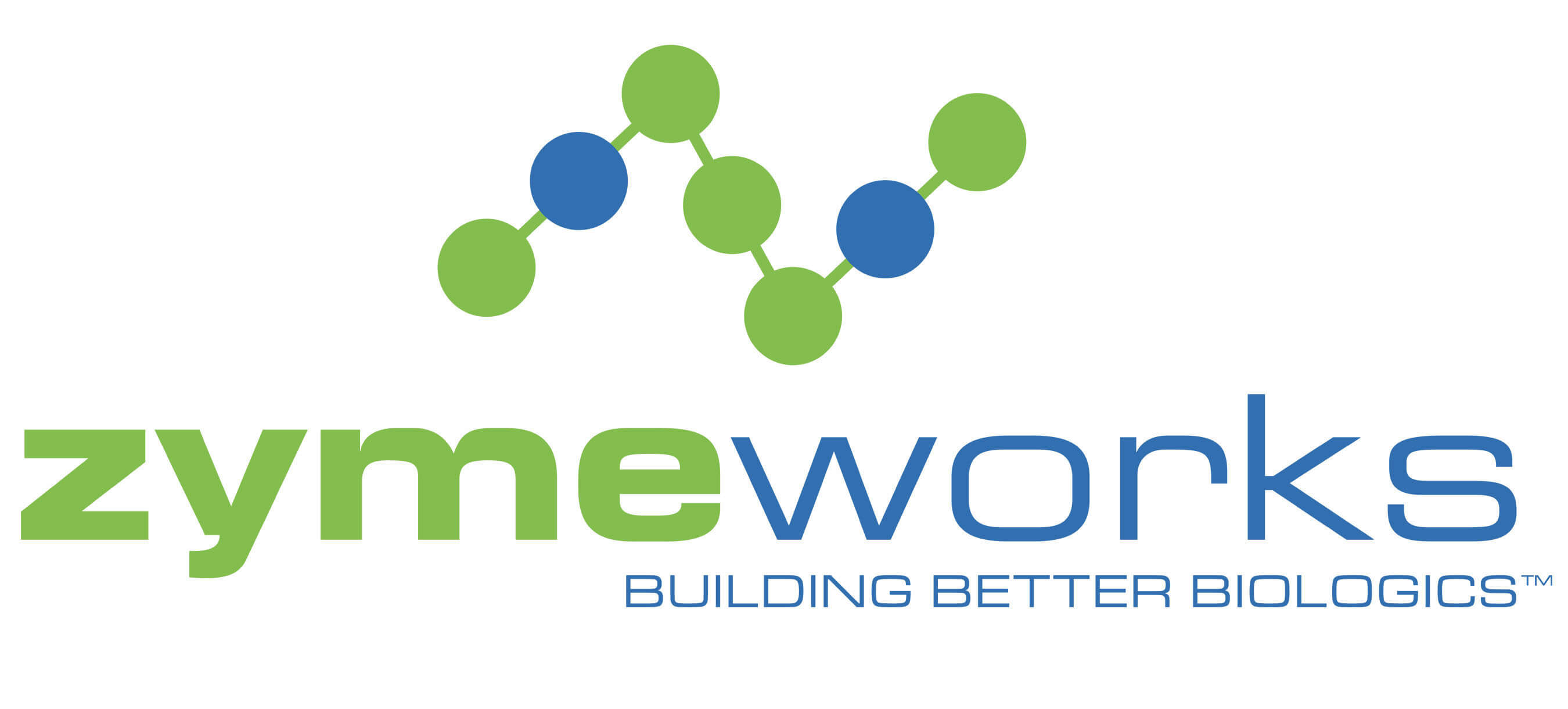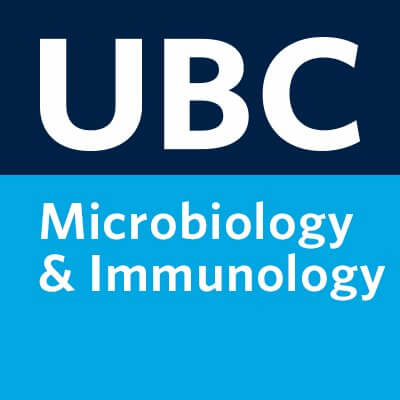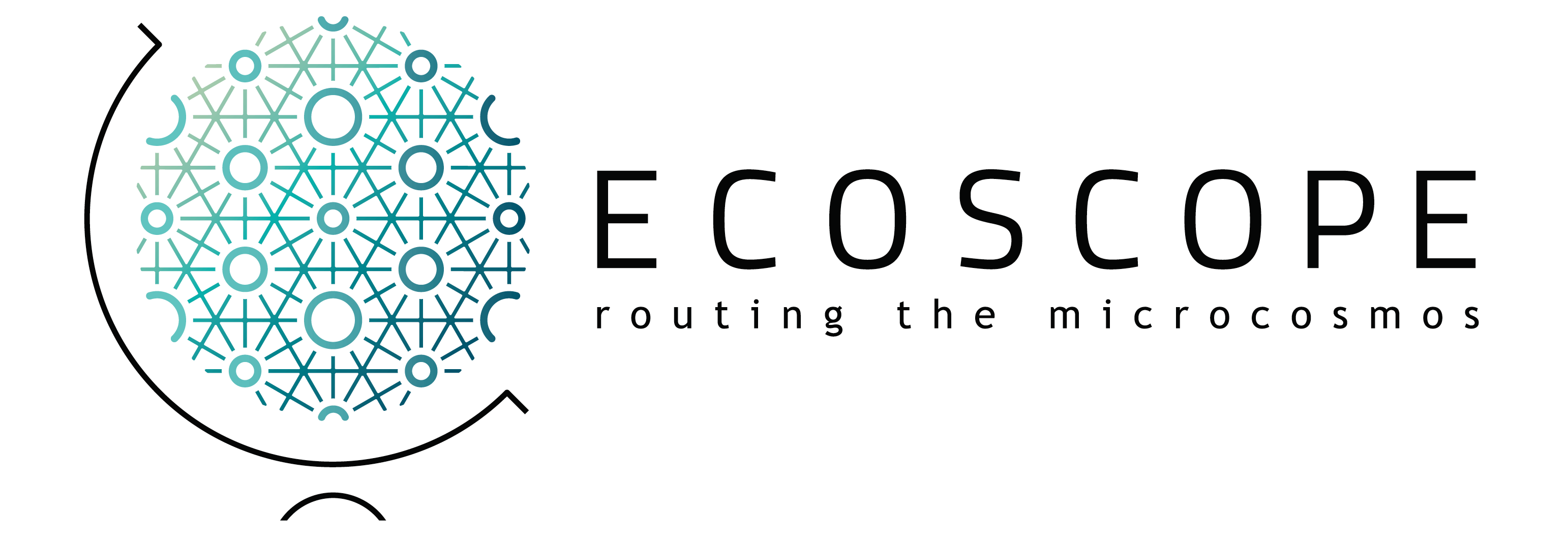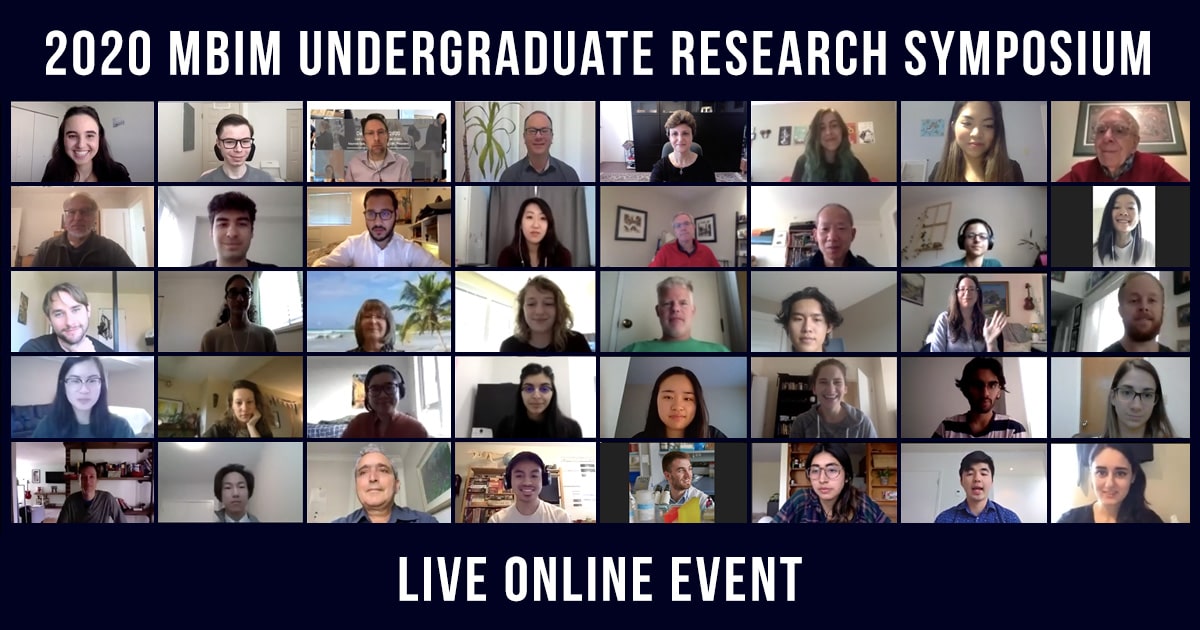2020 MBIM Undergraduate Research Symposium
Date: April 30th, 2020
Date: April 30th, 2020
Live Online Presentations over Zoom.
Keynote Speaker: Dr. Santa Ono, UBC President
2020 Awards:
Details HereProgram Package:
Download
The MBIM URS is an excellent opportunity for undergraduate students to share their research findings, develop communication skills, and network with UBC faculty and peers.
The symposium will include oral and poster presentations featuring the work of our undergraduate students done in research laboratories (MICB 448/449/Co-op), and some of our experiential learning courses (MICB 406/421/447).
Prizes for the top presentations will be awarded.
Please direct any questions about the symposium to Dr. David Oliver (dcoliver@mail.ubc.ca).
WELCOME
It is with great pleasure we welcome you to the 2020 Microbiology and Immunology Undergraduate Research Symposium (MBIM URS)! After the success of the last two years, we are delighted to share with you our students’ hard work at the third annual MBIM URS. Although an in-person event is not possible this year due to the COVID-19 pandemic, we believe a live online event is an excellent way to ensure that students have a chance to showcase their work. The organizing committee has been working diligently to make this year’s event a possibility and to set a precedent for the first ever online undergraduate symposium, and we are excited to be able to share this experience with you all.
This year’s symposium will explore the diverse and evolving topics under clinical microbiology, antibiotic resistance, gut microbiome and biofilms, and mechanisms of adaptation. These sessions will provide students with the opportunity to broaden their knowledge and participate in scientific discourse. With the times that we are in, we believe it is more important than ever to continue pursuing advancements in science.
This symposium would not have been possible without our hardworking undergraduate student and faculty organizing committee. We appreciate Dr. David Oliver for his leadership and support in the planning of this event. A special thank you to Dr. Parvin Bolourani for providing guidance and support, Dr. Marcia Graves and Dr. Evelyn Sun for providing insight at meetings, Eric Lee for his IT expertise, and Craig Kornak for helping us reach out to students. We are honoured to have Dr. Santa Ono as our keynote speaker, and we would like to thank Dr. Michael Murphy and Dr. Julian Davies for their welcome addresses. Lastly, we would like to thank all of the symposium participants and attendees for supporting us and seizing this opportunity to advance their scientific experience and education.
We hope you enjoy this symposium and continue supporting undergraduate research in future years. We are looking forward to your virtual presentations!
Yours Remotely,
Mahta Amanian and Wesley Hunt
Co-Chairs | 2020 MBIM Undergraduate Research Symposium



Letter from Dr. Michael Murphy
A message from the Department Head
Welcome to the Undergraduate Research Symposium hosted by the Department of Microbiology and Immunology at UBC. The symposium is a showcase of the range and depth of research performed by undergraduate students both in lab courses and in research labs at UBC.
The presentations will demonstrate the high-quality of science performed by the talented students in our programs. Moreover, this student-led and organized symposium is evidence of student curiosity to learn and desire to communicate their science discoveries with each other and the larger UBC community. This drive to connect and work as a community of researchers and learners was not to be suppressed by the inability this year to meet in person. Instead, the first virtual undergraduate research symposium has arrived and will celebrate the many research successes of undergraduates in the Department. I look forward to learning about your research projects and meeting you in person in the future.
Michael Murphy, PhD
Professor and Head
Department of Microbiology & Immunology
University of British Columbia
Program Event Schedule
| Thursday April 30th, 2020 |
Live Online Presentations over Zoom |
||||||||||||||||
|---|---|---|---|---|---|---|---|---|---|---|---|---|---|---|---|---|---|
|
9:00 - 10:00AM |
Opening Remarks & Keynote Speech
|
||||||||||||||||
|
10:00 - 11:25AM |
Session 1: Clinical Microbiology
Session 2: Antibiotic Resistance
|
||||||||||||||||
|
11:30AM - 12:00PM |
Company Talk
|
||||||||||||||||
|
12:15 - 1:55PM |
Session 3: Gut Microbiome and Biofilms
Session 4: Mechanisms of Adaptation
|
||||||||||||||||
|
2:00 - 2:15PM |
Thank You & Explanation of Awards |
May 1st - Announce awards on this page
Note: Schedule is currently tentative and subject to change
Keynote Lecture

Santa J. Ono
Speech: Curiosity and a Desire to Help Others: My Career Path in Immunology
Professor Santa J. Ono is the President and Vice-Chancellor of the University of British Columbia, a global centre for research and teaching with 64,000 students, 16,500 faculty and staff, and a $2.5 billion operating budget. Prior to his appointment in 2016, he served as president of the University of Cincinnati. Inside Higher Education named him America's most notable university president in 2015. In 2016, the American Council on Education awarded him the Reginald Wilson Diversity Leadership Award.
As a professor of medicine and biology, Professor Ono has worked at Harvard, Johns Hopkins, University College London, and Emory universities. He was also inducted by Johns Hopkins into its Society of Scholars, and is a Fellow of the Royal Society of Chemistry, the Canadian Academy of Health Sciences, the American Association for the Advancement of Science and the National Academy of Inventors, USA.
Professor Ono’s research encompasses the immune system, eye inflammation and age-related macular degeneration.
An avid music lover, Professor Ono studied at the Peabody Conservatory of Music in Baltimore and still finds time to play his cello – even taking to the concert stage to perform on occasion. He is married to Wendy Yip, who trained as an immunologist at McGill and as a lawyer at Boston University. They have two daughters, Juliana and Sarah.
Deadline - April 10th, 2020
MBIM URS uses the guidelines for abstract submission to the American Society for Microbiology Annual General Meeting (summarized in the box below). Please ask your supervisor or course Instructor for advice if you have questions about writing a scientific abstract. Indicate if you would prefer to give an oral presentation (individual or team-based) or poster. A committee will select abstracts for oral presentations. All submissions will be invited to present a poster. Printing services for posters will be provided.
Your abstract may have a maximum limit of 350 words. Authors, groups, institutions, and acknowledgement/references are not counted.
Use 12-point Times New Roman font.
- Abstracts must be well written and easy to understand.
- Approval of all co-authors must be obtained before placing their names on an abstract.
- Abstracts that do not meet the submission requirements will be subject to rejection
Guidelines for Abstracts for Original Research Talks or Posters (MICB 421/447/448/449/co-op):
- The reason for the study or how the study came about (e.g. hypothesis, discovery or central question) should be clearly stated.
- Methods must be included.
- Data must be objectively gathered, analyzed and reported.
- Data must support the stated conclusion(s).
-
Scientific research presentations will be expected to transparently report a study, including, but not limited to the following:
- Experimental design
- Methodology
- Data collection
- Analysis
- Interpretation and reporting of results
- Other key components of scientific rigor that should be included, if applicable, are sample size, randomization, blinding, and replication.
This American Society for Microbiology video provides useful guidance on writing a scientific abstract:
https://www.youtube.com/watch?time_continue=428&v=lLTJ1PKtZwU
Presentation Guidelines: Download
Guidelines for PEARLS (MICB 406) Hot Topic presentations:
-
Structure should follow:
- Introduction (background on viruses/viral diseases investigated)
- Rational (problem statement - unresolved questions, opportunities, challenges in the fields selected)
- Three research questions that will be investigated
- Proposed experimental approaches to investigate these questions (technology platforms)
- Expected findings from these studies
- Overall impact of the proposed work in molecular virology (potential breakthrough and advances in viral infectious diseases)
REX/MURC presentations:
-
Structure should follow:
- What is the significance of my study? This can be thought of as the motivation behind the study.
- Problem/knowledge gap/hypothesis: What is your study trying to address? What is your main hypothesis?
- Methods: How did you try to answer this question/address this problem?
- Results: What did you find? NOTE: If you are doing a theoretical project in which you have not obtained results, you can include your expected results in this section. E.g. “We expect to see...”
- Implications/discussions: What are the implications of your results?
Undergraduate Planning Committee
- Mahta Amanian (Co-Chair)
- Wesley Hunt (Co-Chair)
- Brooke Cheng
- Baria Choudry
- Yasmine Chung
- Antyrah de Guzman
- Nikola Deretic
- Ameena Hashimi
- Al Rohet Hossain
- Helen Hsiao
- Cai Lan Jennifer Huang
- Cynthia James
- Shirley Liu
- Quentin Michalchuk
- Luiza Pontual
- Prabhreet Sekhon
- Egon Shin
- Hanna Thobani
- Amelia Tjoa
- Ashley Tong
- Jennifer Tong
- Kelly Wei
- Andrew Wilson
Faculty & Staff
- David Oliver, PhD (Co-chair) - Instructor
- Francois Jean, PhD (Co-chair) - Associate Professor
- Parvin Bolourani, PhD - Outreach, Alumni Engagement, Postdoctoral Fellows & Project Coordinator
- Michael Murphy, PhD - Microbiology & Immunology Department Head
- Marcia Graves, PhD - Instructor
- Craig Kornak - Undergraduate Administrative Assistant
- Evelyn Sun, PhD - Postdoctoral Teaching Fellow
- Eric Lee - IT Support & Web Design






